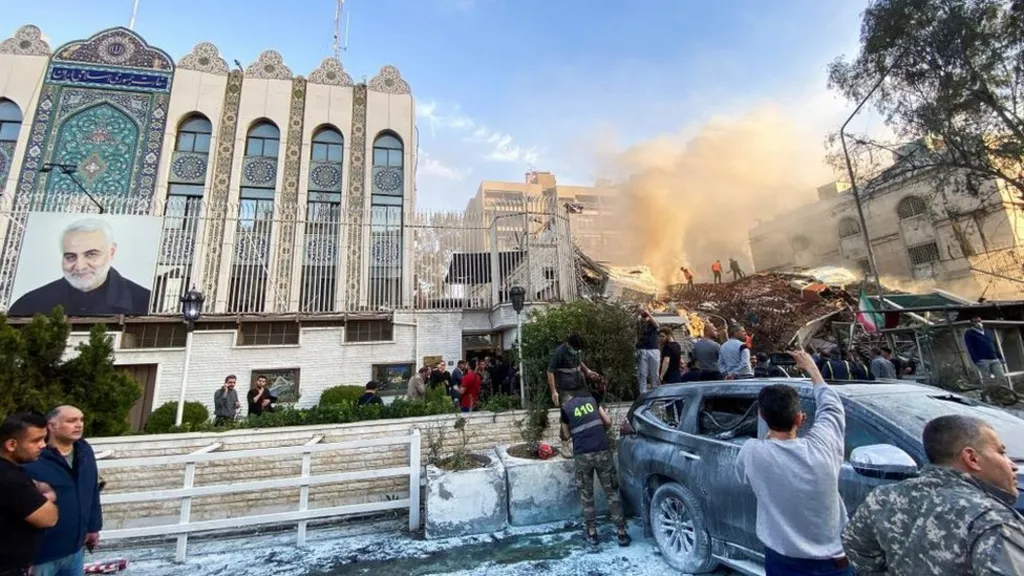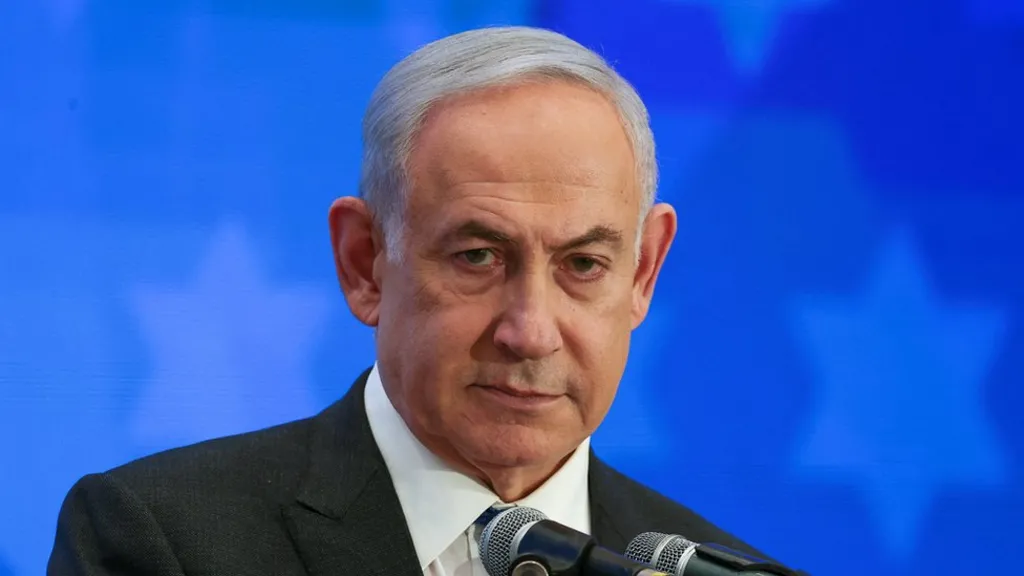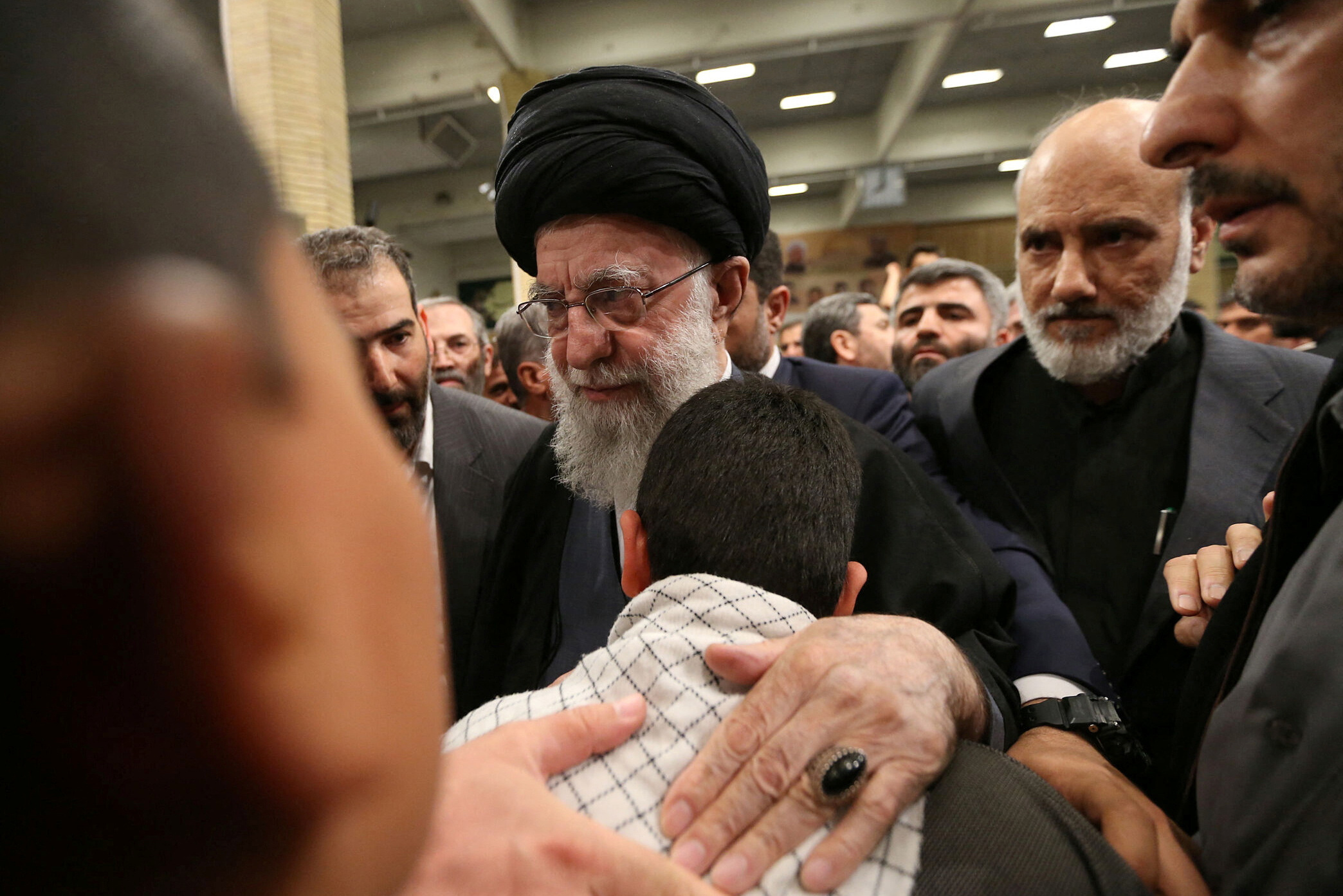According to local media, Israel’s prime minister will meet with senior officials to plan for a potential Iranian attack.
The prospect of Tehran taking revenge for an airstrike that killed top Iranian commanders over two weeks ago has raised tensions.Citizens of several nations are now advised against traveling to both nations.
US authorities have hinted at an impending big attack on Israel to CBS News, the US partner of the BBC.
Members of Benjamin Netanyahu’s war cabinet, such as opposition leader Benny Gantz and Defense Minister Yoav Gallant, are anticipated to meet with Netanyahu.
Iran may utilize more than 100 drones, several dozen cruise missiles, and maybe ballistic missiles, according to a US official CBS spoke with.
According to reports, these would be directed on military objectives in Israel, making it “difficult” for Israel to defend against.The person went on to say that Iran might still choose to hold back.
US National Security Council spokesperson John Kirby stated on Friday, “I can’t speak to the size, scale, scope of what that attack might look like,” but he also called the Iranian threat “credible” and stated that Washington was “watching it as closely as we can.”
-
How might Iran try to harm Israel following the death of the general?
-
Why are Hamas and Israel at war in Gaza?
In the case of an Iranian strike, President Joe Biden has already assured Israel of his nation’s “ironclad” support.
The US, UK, India, Australia, and other nations have issued travel advisories against Israel due to the escalating tensions.
Additionally, the US State Department prohibited diplomatic personnel and their families from leaving Tel Aviv, Jerusalem, and Beersheba.

Israel is worried and uneasy about the prospect of an Iranian attack. However, the government has not given the populace any additional advise beyond the current directive to stockpile water, food for three days, and necessary medications.
However, according to Israeli radio, local officials were instructed to get ready for any strike, including evaluating how well-stocked public shelters were.
Last week, the Israeli military increased air defenses, called up reservists, and canceled combat personnel’ home leave amid the first signs of a potential Iranian reaction.
The missile strike on the Iranian consulate in Damascus, the capital of Syria, on April 1 claimed the lives of thirteen individuals.
Senior Iranian military figures were there, including Brig Gen. Mohammad Reza Zahedi, who is in charge of Iran’s special Quds Force in Syria and Lebanon.
Although it has not responded, Israel is generally believed to have done so.
Hamas attacked Israeli communities close to the Gaza Strip, killing around 1,200 people—most of them civilians—and kidnapping over 250 more. This incident served as the impetus for the current conflict. According to Israel, at least 34 of the 130 hostages who are still in Gaza are dead.
The health ministry headed by Hamas reports that over 33,600 Gazans, most of them civilians, have died as a result of Israel’s retaliatory campaign in Gaza.
Amidst the battle, Iran-backed militias in Iraq and Yemen have attempted to strike Israeli territory as well as US sites in Iraq and Syria. Israel and Hezbollah, a Lebanese group, have traded fire over Israel’s northern border virtually every day.

The US and the UK launched missiles against the Houthi movement in Yemen after it assaulted Red Sea trade, sinking at least one ship.
https://youtu.be/m2Pl6Sqc4dw?si=gTjWrHiYevFJMpOZ
FAQs
-
What caused the hostilities between Iran and Israel to escalate?
-
What defenses has Israel put in place to lessen the perceived threat posed by Iran?
-
In what ways are other nations addressing the escalating tensions within the region?
-
What might happen in the event that Israel and Iran engage in combat?
-
What diplomatic initiatives are being taken to diffuse the situation?
Written By:Syed Sohail

